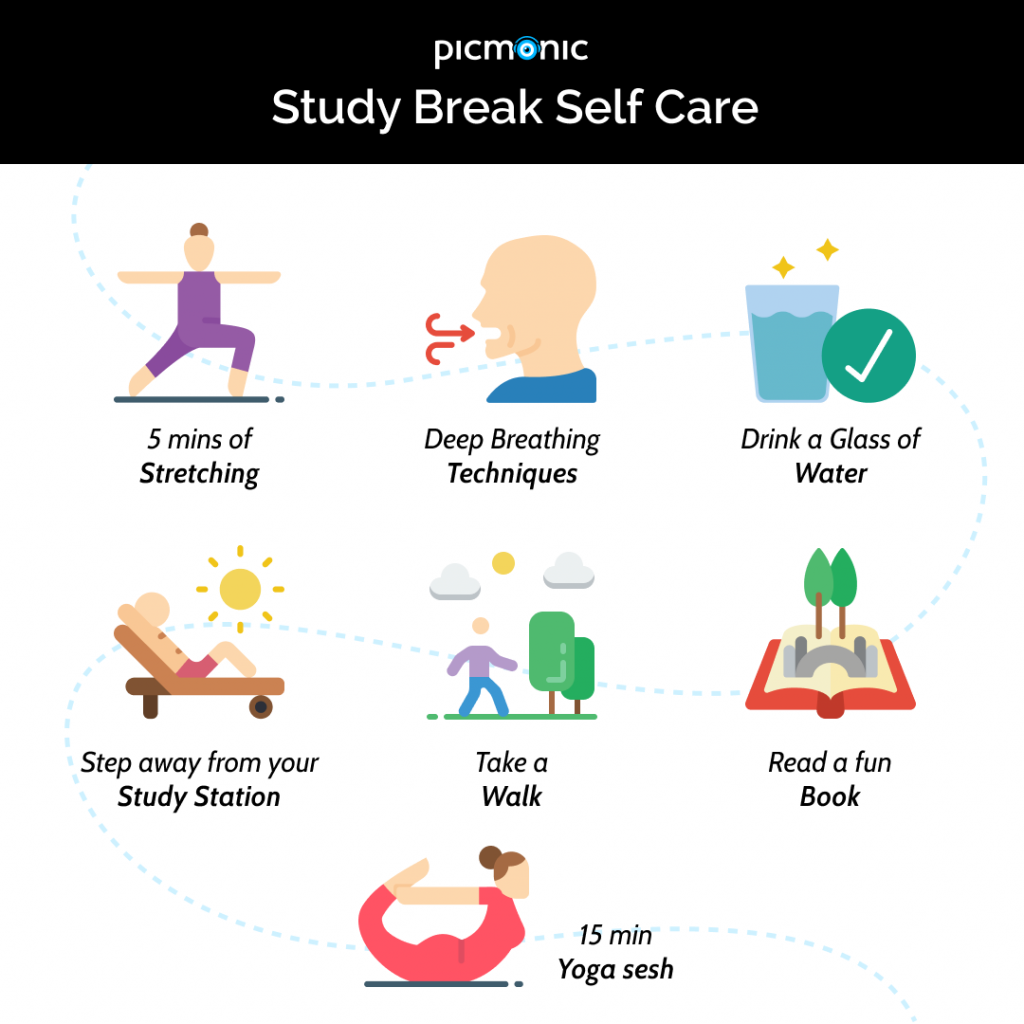
Effective study schedules are a must in nursing school. So, if you need to get organized and study, use our comprehensive guide to lay down your study foundations and prepare for your next nursing exam.
Establishing Your Study Plan/Foundations
You need to establish a set of foundations to make an adequate nursing school study plan. Since we’ve got lots to cover, let’s break it down!
1. Organization and Routine
This is the start of your foundation for your study plan. Time to build from the ground up.
Design your lifestyle
Grab a planner or calendar and have it on you 24/7. Whether you’re a Google Calendar fiend or prefer the handy dandy pocket planner, stick to it!
From there, you need to break your day into 30-minute time blocks. Don’t get scared—it may sound like a lot, but it will help you build a structured and effective study schedule.
Weekly plan
Lay out your priorities for the week and categorize them from A to C in order of importance. A priorities are the hard priorities; these include studying, class, and exams. B priorities are anything that comes after like appointments, exercise, and chores. C priorities are flexible things you can move throughout your week.
Once you have a rough draft of the week, create a day for weekly maintenance! For example, you can make a Self-Care Sunday, Finance Friday, Maintenance Monday, or any clever thing you can think of to make sure you get your weekly chores done.
Daily plan
Time to simplify your weekly plan. You may feel like you have a million things to do, but decide your top two to three priorities to complete each day. This way you can go to bed feeling accomplished and begin building a positive mindset that sets you up for success.
2. Time Savers in Nursing School
Get rid of the fluff! In other words, you have to limit your screen time. Cap it—don’t get rid of it. If you pencil it in, you won’t feel guilty about it. Need help being disciplined? Use time management software on your favorite apps or devices.
Once you’ve set your limits, find ways to multitask. Exercise while you watch your favorite show, read with a meal, or listen to a podcast on your daily commute. The choice is yours.
3. Self-care

Meditation, exercise, nutrition, and sleep are the four self-care holy grails throughout nursing school. Try guided meditation videos, move your body, and keep yourself properly fed, hydrated, and well-rested. This is especially important when you’re completing clinicals.
4. Learn Actively
Use coursework and exams to prepare for anything and everything. By building on what you’re already learning, you’ll conquer testing day with confidence. To keep learning actively, use spaced repetition. Spaced repetition is when you revisit information you need to master frequently and revisit mastered information less frequently. Picmonic uses the spaced repetition learning model to maximize retention and recall so you can learn faster and perform better!
Study Time Organization

Organize your nursing school study schedule with the following recommendations.
Know Yourself
Find the time and location where you’re most productive and study! Don’t know it? Take a week to experiment with four-hour blocks. You can try 6 to 10, 10 to 4, or 4 to 8. Who knows? You may surprise yourself.
Don’t forget that new routines take time. You’re essentially training your brain to build a healthy habit. If you require assistance, keep an accountability buddy on speed dial! This can be a friend or peer in your class that holds you accountable.
For a little more guidance, read our guide on how to succeed in nursing school using Picmonic.
How many hours should a nursing student study?
On average, nursing students study two hours for every one hour of class. Thus, if you’re a full-time nursing student, you’ll probably study about 24 hours per week. Hold your horses, don’t study for 24 hours straight. We’ll walk you through how to divide your study time next.
How to Divide Your Time Studying
First, determine what time you study best. When you’ve got your block of time, spend about three to four hours studying. If you’re worried about what you should be studying, prioritize the topics you’re struggling with the most.
Otherwise, when in doubt, use the Picmonic study scheduler. Here’s how to utilize this useful tool to study for an upcoming exam.
First, you’ll want to log in to Picmonic to see your Picmonic Dashboard. Once you’re in, scroll until you see the study scheduler and click it. Then, you can pick the date of your test and how many days you want to study a week.

Next, click all the subject areas you’ll be tested on. You can pick a category to narrow down your selection to the subcategory or topic level. On the left-hand side, you’ll see how many topics you’ve selected, the topics you’ve previously learned, the total learning time, and the time per day you’ll need to study in the Picmonic platform.

There you have it—your study schedule is all ready to go. You’ll see how many Picmonics you need to learn and their facts, and you can name your schedule. Ta-da!
Practice, practice, practice!
In nursing school, questions aren’t about the right answer. Instead, you should focus on the best answer. This applies to your NCLEX questions too—flex that brain muscle early.
- When answering a “first” question, think systematically.
- When answering a “best” question, consider ONE thing a nurse can do for the best outcome and leave.
- When answering “select all that apply” questions, read the question, answers, and then the question again.
Now, you’re ready to put your nursing school study plan to the test! Sign up for Picmonic and start using it as your nursing school study guide today.













